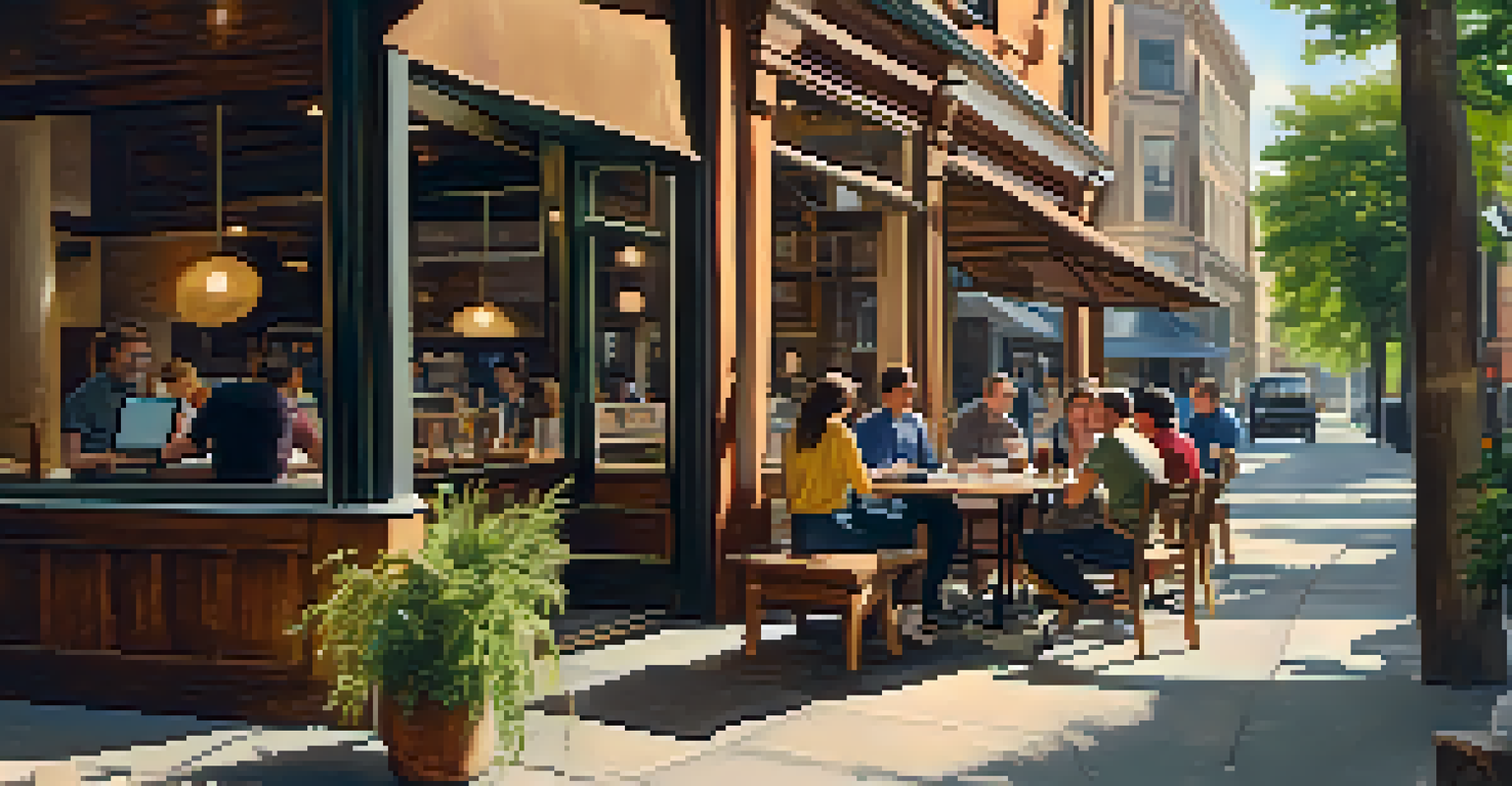Adapting Self Defense Techniques to Different Environments

Understanding the Importance of Environment in Self Defense
When it comes to self-defense, the environment plays a crucial role in determining the effectiveness of your techniques. Different settings, such as urban areas, rural landscapes, or confined spaces, each present unique challenges and opportunities. By understanding how your surroundings can impact your self-defense strategy, you can better prepare yourself for any situation.
The best defense is a good awareness of your environment and the ability to adapt to it.
For instance, defending yourself in a crowded subway will require different tactics than in a secluded park. In the subway, you might need to focus on quick, decisive movements to evade threats, while in the park, you might have more space to maneuver and leverage your surroundings. Recognizing these differences is the first step in adapting your self-defense approach effectively.
Moreover, being aware of your environment can also enhance your situational awareness, enabling you to spot potential dangers before they escalate. This proactive mindset is essential for staying safe and making informed decisions when faced with a threat.
Self Defense in Urban Environments: Strategies and Techniques
Urban environments often come with their own set of challenges, including crowded spaces, limited escape routes, and various obstacles. In these situations, self-defense techniques should prioritize quick reactions and the ability to navigate through tight spaces. Techniques such as close-quarter combat or utilizing objects around you can be incredibly helpful.

For example, if you're in a coffee shop and feel threatened, using nearby items like chairs or tables can create barriers or give you leverage. Additionally, staying aware of exits can be a game-changer; knowing how to quickly exit a situation can often be just as important as knowing how to defend yourself.
Environment Shapes Self-Defense
Understanding your surroundings is key to adapting self-defense techniques effectively.
Lastly, consider the psychological aspect of self-defense in urban settings. Maintaining a confident posture and being aware of your surroundings can deter potential attackers before a confrontation even occurs. Remember, often the best defense is to avoid the situation altogether.
Rural Self Defense: Adapting to Open Spaces
In a rural setting, self-defense techniques need to adapt to the vastness of open spaces and fewer obstacles. Here, you might have more room to maneuver, but this also means that you may need to consider how to create distance between yourself and a potential threat. Strategies that emphasize running, evasive movements, and finding natural barriers can be vital.
In self-defense, the most effective moves are often those that allow you to escape rather than engage.
For example, if you're hiking and encounter a threat, using the terrain to your advantage can help. High ground or dense foliage can provide you with options for either escape or concealment. This kind of strategic thinking is essential when navigating rural landscapes.
Additionally, it's important to be aware of your surroundings in rural areas, as they can also present unique risks, such as wildlife encounters. Understanding the environment can help you prepare for these situations and adapt your self-defense techniques accordingly.
Self Defense in Confined Spaces: Challenges and Solutions
Confined spaces, like elevators or small rooms, present unique challenges for self-defense. The limited space means that traditional fighting techniques may not be effective, so adapting your strategy is crucial. In these situations, focus on using your environment to your advantage, whether that means leveraging walls or using any available objects as shields.
Consider a scenario where you find yourself cornered in a small room. Techniques like redirecting an attacker's force or using quick strikes to incapacitate can be effective. The emphasis should be on quick, decisive actions that allow you to escape rather than engage in a prolonged struggle.
Urban vs. Rural Defense Tactics
Self-defense strategies differ significantly between urban and rural environments, requiring tailored approaches.
Moreover, practicing self-defense in confined spaces can help you become more comfortable and confident in such situations. Drills and simulations can prepare you mentally and physically, making it easier to react appropriately when faced with a real threat.
Using Everyday Objects for Self Defense
Adapting self-defense techniques often involves thinking creatively about the tools at your disposal. Everyday objects can serve as effective self-defense aids when you're caught off guard. Items like keys, pens, or even a handbag can be used to create distance or deter an attacker, so it's beneficial to be mindful of your surroundings.
For instance, if you find yourself in a potentially dangerous situation, using a key as a makeshift weapon can provide you with an advantage. A quick jab to a sensitive area can give you the opportunity to escape. Similarly, a pen can be used for quick, targeted strikes if necessary.
The key is to practice using these objects in self-defense scenarios to build confidence and familiarity. The more comfortable you are with your environment and the items within it, the better prepared you'll be to react effectively in a crisis.
The Role of Awareness and Prevention in Self Defense
Awareness is arguably the most critical aspect of self-defense, regardless of the environment. Being alert to your surroundings can help you identify potential threats before they escalate, allowing you to adapt your response accordingly. This proactive approach can significantly increase your chances of staying safe.
For example, if you notice someone following you in a parking lot, you might choose to enter a store or seek help rather than confront the person directly. This decision-making process is rooted in awareness and understanding the environment around you.
Awareness is Crucial for Safety
Being aware of your surroundings can help you identify threats early and make informed decisions to stay safe.
Furthermore, practicing prevention techniques, such as taking self-defense classes or learning about safe routes in your area, can empower you to feel more secure. The more informed and prepared you are, the better equipped you will be to handle any situation that arises.
Legal Considerations in Self Defense Across Different Settings
Understanding the legal implications of self-defense is essential, as laws can vary significantly based on location and environment. Depending on where you are, the degree of force you can legally use in self-defense may differ, so it's crucial to be informed. This knowledge ensures that you can protect yourself without crossing legal boundaries.
For instance, some places have 'stand your ground' laws, while others may require you to retreat if possible before using force. Familiarizing yourself with these laws can help you make informed decisions in high-pressure situations, potentially avoiding legal repercussions.

Additionally, seeking advice from legal experts or attending workshops on self-defense laws can provide clarity. By being prepared and knowledgeable, you can not only defend yourself physically but also protect your rights and freedoms.